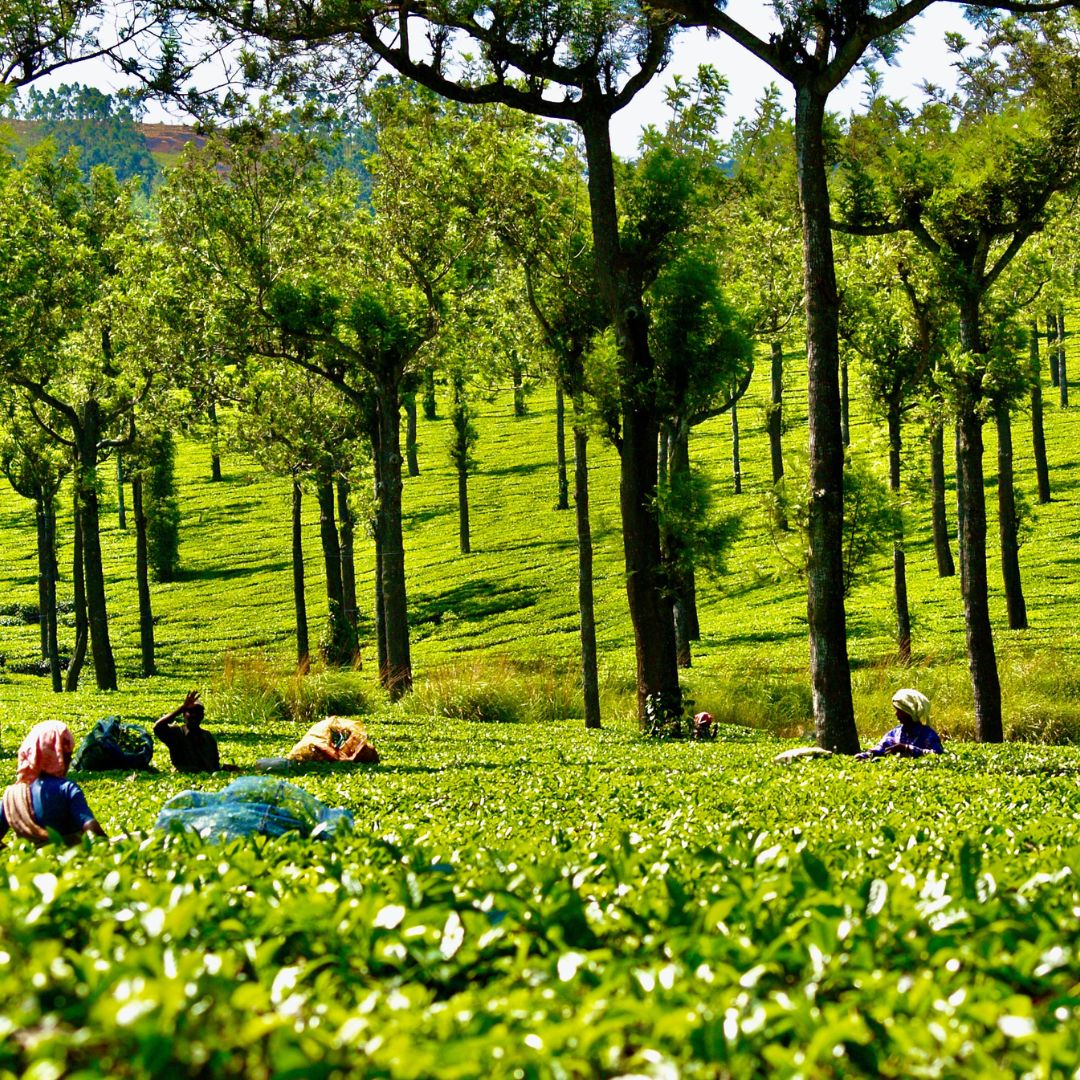
What Is Responsibly Sourced?
The concept of responsibly sourced has been gaining traction in recent years as consumers become more aware of the impact their purchases have on the environment and society. But what exactly does it mean to be responsibly sourced? Simply put, it means that the product has been produced in a way that takes into account the social, economic, and environmental impact of its production. This can include things like fair labor practices, environmentally sustainable production methods, and ethical sourcing of materials. However, the definition of responsibly sourced can vary depending on the industry and the specific product. In this article, we will explore what it means to be responsibly sourced and how it is impacting the way we consume products. So if you're curious about how you can make more responsible choices as a consumer, keep reading!
The Definition of Responsibly Sourced
The definition of responsibly sourced can vary depending on the industry and the specific product. However, there are some common factors that are generally considered when determining if a product is responsibly sourced. These factors include fair labor practices, environmentally sustainable production methods, and ethical sourcing of materials.
- Fair labor practices refer to the treatment of workers involved in the production of a product. This can include things like fair wages, safe working conditions, and reasonable working hours. A product that is responsibly sourced should not be produced using exploitative labor practices.
- Environmentally sustainable production methods refer to production methods that have minimal impact on the environment. This can include things like reducing greenhouse gas emissions, conserving water, and minimizing waste. A product that is responsibly sourced should be produced in a way that does not harm the environment.
- Ethical sourcing of materials refers to the procurement of raw materials used in the production of a product. This can include things like ensuring that the materials are not obtained through illegal or unethical means, and that they are obtained from sources that prioritize sustainability and environmental stewardship.
Aksa Home Decor invests heavily in social, economic and welfare initiatives for our artisan community and sources raw materials in a responsible way. Read more about our impact.
Why Responsibly Sourced Products Matter
Consumers are becoming more aware of the impact their purchases have on the environment and society. As a result, they are increasingly choosing to buy products that are responsibly sourced. This is because responsibly sourced products are better for the environment, better for workers, and better for the communities where they are produced.
- Better for the environment - When a product is responsibly sourced, it means that it has been produced in a way that minimizes its impact on the environment. This can include things like using renewable energy sources, reducing waste, and conserving water. As a result, responsibly sourced products are better for the environment than products that have been produced using unsustainable methods.
- Better for workers - Responsible sourcing also means that workers involved in the production of a product are treated fairly. This can include things like providing fair wages, safe working conditions, and reasonable working hours. When workers are treated fairly, they are more likely to be satisfied with their jobs, which can lead to increased productivity and better-quality products.
- Better for the communities - Responsibly sourced products can have a positive impact on the communities where they are produced. This can include things like providing jobs and economic opportunities and supporting local businesses. When communities are supported in this way, they are more likely to thrive and grow.
The Impact of Responsibly Sourced Products on the Environment and Communities
The impact of responsibly sourced products on the environment and communities can be significant. When products are produced using sustainable methods, they have a lower impact on the environment. This can include things like reducing greenhouse gas emissions, conserving water, and minimizing waste. As a result, responsibly sourced products are better for the environment than products that have been produced using unsustainable methods.
In addition, responsibly sourced products can have a positive impact on the communities where they are produced. This can include things like providing jobs and economic opportunities and supporting local businesses. When communities are supported in this way, they are more likely to thrive and grow.
However, the impact of responsibly sourced products can be complex. For example, in some cases, responsible sourcing can lead to higher production costs, which can make products more expensive for consumers. Additionally, some industries may have more difficulty implementing sustainable production methods than others. Despite these challenges, the benefits of responsibly sourced products are clear.
The Certification Process for Responsibly Sourced Products
Certification is an important part of the responsibly sourced process. Certification programs are designed to ensure that products meet certain environmental and social standards. These programs are often run by third-party organizations that are independent of the producers of the products.
There are many different certification programs for responsibly sourced products. Some of the most well-known programs include the World Fair Trade Organization, the Fair trade association of Australia and New Zealand, Fairtrade, Rainforest Alliance, and the Forest Stewardship Council. These programs have different standards and requirements, but they all aim to ensure that products are produced in a way that is socially and environmentally responsible.

Certification is important because it provides consumers with a way to identify products that have been responsibly sourced. When a product is certified, it means that it has been independently verified to meet certain standards. This can give consumers peace of mind knowing that the product they are buying has been produced in a way that is socially and environmentally responsible.
The Benefits of Using Responsibly Sourced Products
There are many benefits to using responsibly sourced products. One of the most significant benefits is that responsibly sourced products are better for the environment. When products are produced using sustainable methods, they have a lower impact on the environment. This can include things like reducing greenhouse gas emissions, conserving water, and minimizing waste.
In addition, responsibly sourced products can be better for workers. When workers are treated fairly, they are more likely to be satisfied with their jobs, which can lead to increased productivity and better-quality products. Finally, responsibly sourced products can have a positive impact on the communities where they are produced. This can include things like providing jobs and economic opportunities and supporting local businesses.
Examples of Responsibly Sourced Products
There are many examples of responsibly sourced products. Some of the most common examples include:
- Fairtrade coffee: Coffee that is Fairtrade certified has been produced using sustainable methods and workers have been treated fairly.
- Organic cotton: Cotton that is certified organic has been grown using sustainable methods that minimize the use of pesticides and other harmful chemicals.
- Sustainable seafood: Seafood that is certified sustainable has been caught or farmed in a way that is environmentally responsible and does not deplete fish populations.
- Fair Trade Home Decor: Homewares and decorative items that are handmade using the 10 principles of fair trade. Read more about the 10 principles of Fair Trade on Aksa's blog post.

These are just a few examples of responsibly sourced products. There are many other products that can be responsibly sourced, including clothing, furniture, and electronics.
How to Identify Responsibly Sourced Products
Identifying responsibly sourced products can be challenging, but there are some things that consumers can look for. One of the easiest ways to identify responsibly sourced products is to look for certification labels. These labels are often found on the packaging of products and indicate that the product has been independently verified to meet certain social and environmental standards.
Some of the most common certification labels include he World Fair Trade Organization, the Fair trade association of Australia and New Zealand, Fairtrade, Rainforest Alliance, and Forest Stewardship Council. However, there are many other certification labels that consumers can look for, depending on the product and industry.
In addition to certification labels, consumers can also research companies and products to learn more about their production methods. Many companies provide information about their sustainability practices on their websites, and this can be a useful resource for consumers.
The Future of Responsibly Sourced Products
The future of responsibly sourced products is bright. As consumers become more aware of the impact their purchases have on the environment and society, they are increasingly choosing to buy products that are responsibly sourced. This trend is likely to continue as more consumers become aware of the benefits of responsibly sourced products.
In addition, companies are also recognizing the importance of responsible sourcing. Many companies are implementing sustainable production methods and working to improve the lives of workers involved in the production of their products. This is a positive trend that is likely to continue in the future.
Conclusion
In conclusion, responsibly sourced products are products that have been produced in a way that takes into account the social, economic, and environmental impact of their production. These products are better for the environment, better for workers, and better for the communities where they are produced. Certification is an important part of the responsibly sourced process, as it provides consumers with a way to identify products that have been produced in a socially and environmentally responsible way. As consumers become more aware of the impact their purchases have on the environment and society, responsibly sourced products are likely to become even more popular in the future.
